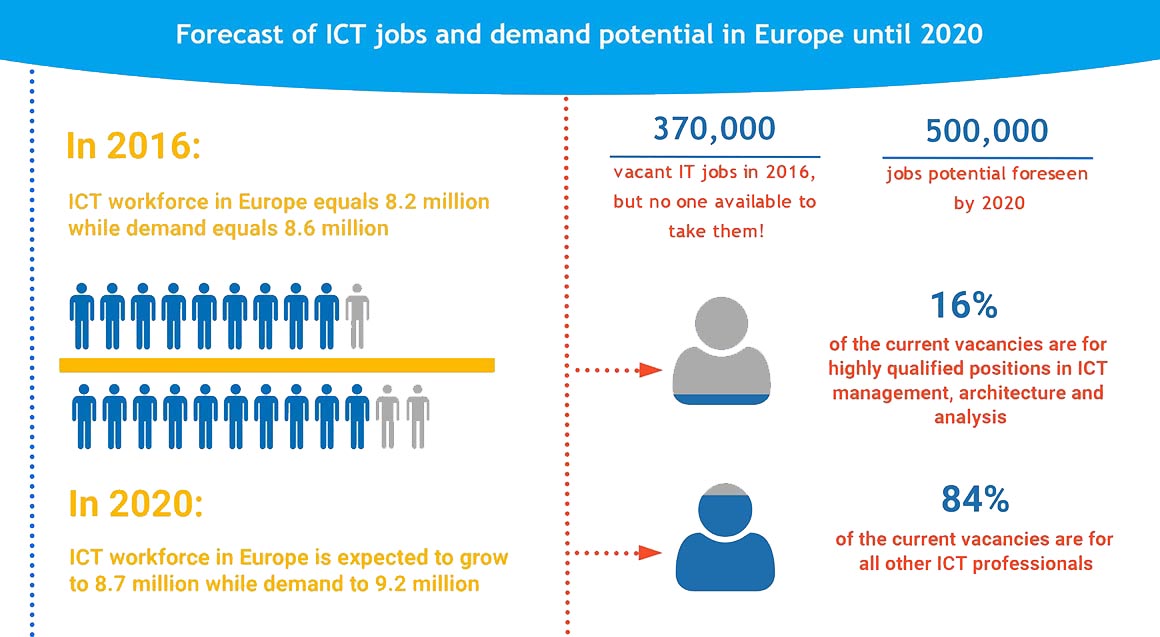
Here are the instructions how to enable JavaScript in your web browser

The policy vision of an inclusive smart economy and society is likely to remain a vision should no action be taken to support diverse populations to enter the labor market. This especially holds true for women, vulnerable youth (low-skilled, school drop-outs, from difficult socio-economic backgrounds), migrants, and unemployed adults changing careers. With unemployment rates around or even above 25% and youth unemployment rates around 50% there is an urgent need for action.
At the same time inequality between the different socio-economic groups reflects another problem when it comes to labor market access. Inequality as expressed by the World Bank Gini index is already high in South Africa (62.5) or comparatively high in Spain (35.9), Ireland (32.5) and the UK (32.6) and lowest in Germany and France (both at 30.1). However, in Germany it has increased, i.e. the situation has worsened, over the past years from a former 27.0 in 2006 to 30.1 in 2013. e-skills and ICT training programs could be seen as a fast track to marketable technical skills for the above target groups at risk of unemployment or already in unemployment.
The demand for e-skills is increasing. Europe is faced with significant gaps, shortages and mismatches with respect to the necessary skills and talent of specialists and digitally-skilled workers. Current estimates show a rather gloomy picture. Latest figures reveal a gap of 363.000 IT professionals in Europe in 2015 increasing to around 500.000 in 2020.[1]

Measurably and significantly increasing the number of girls and women in STEM and ICT occupations and integrating a critical mass of women in Europe in the design, research, innovation, production and use of ICT is seen as another means to increase the employment rate of this target group and at the same time contribute to closing the ICT skills gap. This could help to further increase the employment rate of women which in the above European countries is around 10% below the total one (including men and women). Except for Germany it has hardly increased over the past ten years and remains between 51.2% in Spain and 69.5% in Germany compared to an overall employment rate ranging from 60.7% and 78.1%. In ICT occupations the situation is even worse. The rate of woman ICT specialists ranges from only 16.7% in the UK to 19.7% in Ireland. There is a huge occupation potential for women in the ICT domain.
Finally, ICT training is seen as an opportunity for vulnerable groups like youth with low educational achievement, and unemployed adults changing careers but also migrants and refugees in helping them to develop IT skills and secure a relevant job or go on to further education. Actors like the Cisco Networking Academy are starting brining their programs to refugees. Employers have also become active by opening their education and training activities to refugees. This year Deutsche Telekom for instance received 43,264 applications for their education and training programs. The vast majority of these are ICT related programs and studies. 2200 candidates were selected out of which 100 were refugees (https://www.telekom.com/medien/konzern/321112).
[1] Hüsing, T., Korte, W., Dashja, E.: e-Skills in Europe - Trends and Forecasts for the European ICT Professional and Digital Leadership Labour Markets (2015-2020). empirica Working Paper, 2017 (forthcoming)